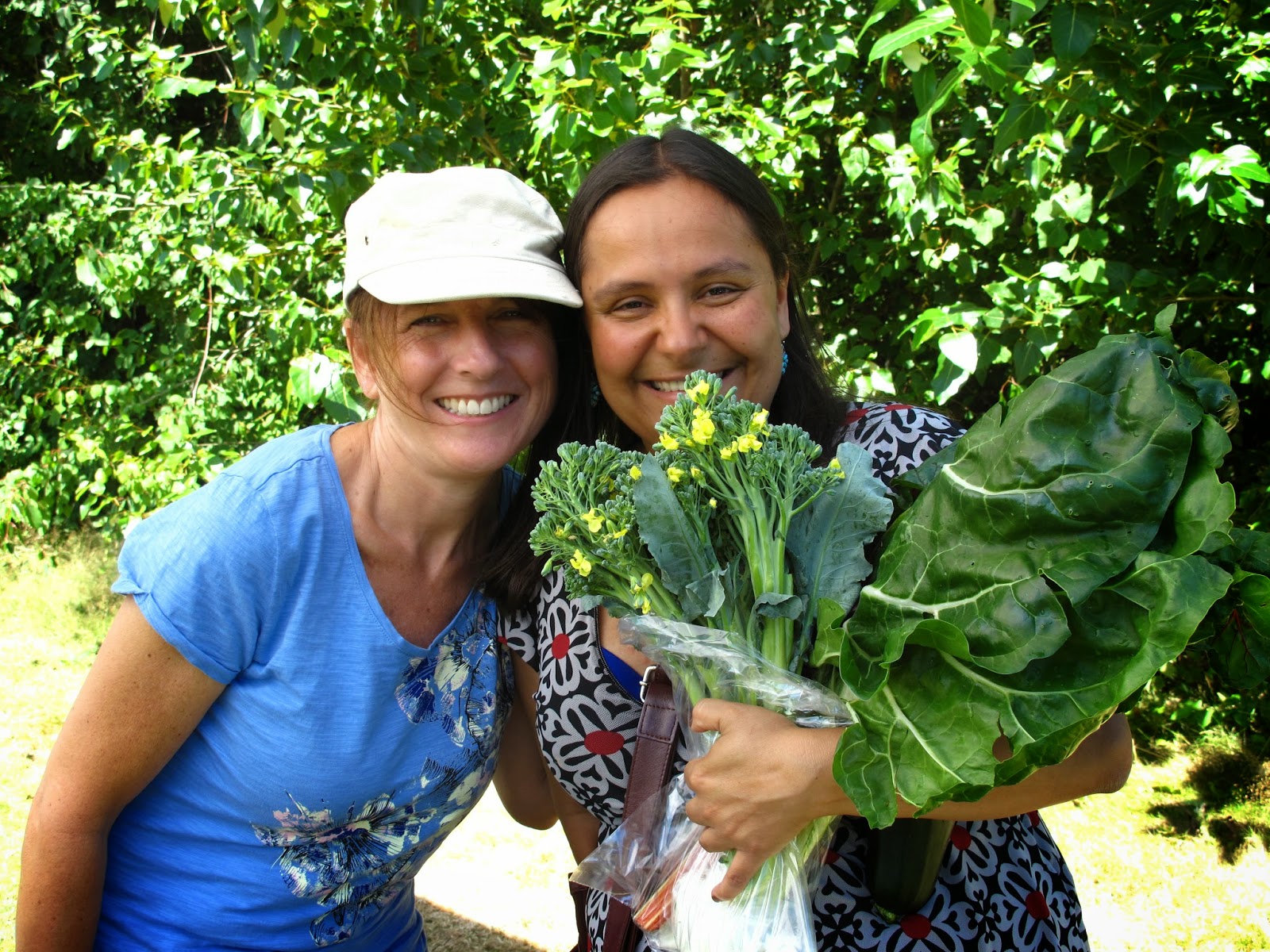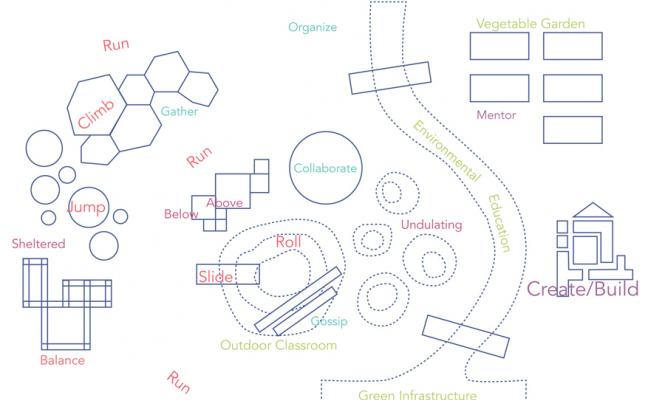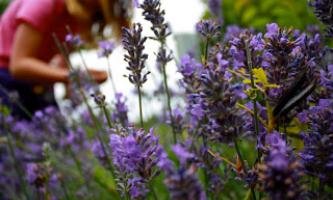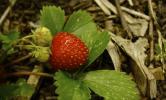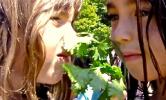It is a great honour for me to be given this platform to
share my experiences with respect to school gardens in Ghana. During my recent trip
to Ghana (my home country) on April 28, 2014, I had an opportunity to carry out
a research on behalf of UBC Orchard Garden. The purpose of the study was to explore the
use of school Gardens in Ghana.
Ghana is located in West Africa, with a population of about
24 million.
 |
| Map of Africa |
Participating schools
My research journey led me to four schools in the central
region of Ghana: two High schools namely,
Mankessim and Aggrey Memorial High
school. The respondents consisted of both boarding and day student s aged
between 14 -17 years and one Junior high school namely, Jukwa Model Junior High School. The participants were aged between (11-14)
years. I was privilege to observe activity based lessons and also conducted
interviews with students and teachers on the issue of school gardens and their
pedagogical affordances and constraints. In addition, issues such as the kind of crops grown in the garden,
cultural and religious reasons and the kind of support they receive from both
the government and Non Governmental Organisations were also explored.
 |
| Jukwa Model Junior High School |
 |
Mankessim Senior High School
Nature of School Gardens
Observed |
The School gardens
observed were mostly large (at least one hectare or more) but segmented into
regions or parts for the purpose of the cultivation different kinds of crops
and also easy management of the portions allocated to the students. Mostly
tropical crops such as: cassava, cocoa, plantain, garden eggs dominate the
cultivated lands. Maize and cassava are the major staples in the south western
part of Ghana, where these schools are situated. There is a Ghanaian adage
which says that “a man who is able to feed his family on maize from harvest to
harvest is considered a wealthy person” hence; vast portions of most farms and
gardens are used to cultivate maize in many parts of Ghana.
The produce from the
school gardens are mostly used to feed the students in the boarding house. For
instance, Mankessim Senior High school, one of the schools visited use the
produce from the garden to feed its boarding students.
Notwithstanding the high
temperatures in Ghana (average of 29C degrees Celsius) some temperate crops
such as lettuce, cabbage, and carrots are commonly grown for learning purposes
with the aid of erected shades that reduce the impact of direct sun rays on the
plants.
 |
| Cocoa trees at Mankessim High School |
.JPG) |
| maize farm at Aggrey Memorial High School |
 |
| Students preparing cassava stems for planting |
%2B(16).JPG) |
| Palm plantation at Mankessim High School |
 |
| Silage prepared by Agricultural Science students at Mankessim High School |
 |
| constructing Sheds to prevent the effect of sun rays on seedlings |
 |
| Mankessim Senior High School: Students are assigned to beds |
 |
| Hoe: A simple tool used for weeding around plants |
 |
| Cutlass: A simple garden tool for weeding and pruning tree branches |
 |
| Teacher demonstrates to students how to nurse lettuce |
 |
| Manual watering of seedlings |
 |
| Students doing hand watering due to lack of modern irrigation facilities in some schools |
Community,
Government and NGO Support for school Gardens!
On the
issue of the kind of support given those who are engaged in activities
pertaining to the school gardens, one of the teachers commented, “…
"We are
mostly supported by MOFA (Ministry of Agriculture) and Development Assistance for school Farms
(DASF) to engage in poultry projects and
garden activities. DASF provide us with watering facilities such as tanks and
cans while MOFA assists us with some seeds, poultry birds and some technical
advice”
This was revealing to me because it was
the first time that I learnt about kind
of support the government and an NGO
have been given to the school garden project. This is a novelty in the history
of the school garden project in the
country because in the past it was only the communities that use to give a bit
of support to the schools in the form of compost and manure. This sort of assistance
from the government and the NGO in my estimation would take the school garden
project to a different height.
Students’ Share their experiences
in the use of School Gardens for teaching
Emmanuel, a student from Jukwa Junior
high school shared his experience and feelings about the school garden project
at his school:
“I remember when we first sowed maize seeds and after few days we could
see the sprouts of plants. It brought
joy and a sense of fulfillment to me.”
Abena, a student from Mankessim High
school in expressing her opinion on this issue remarked:
”I love to be
outside. I could have a practical feel of plants as the teacher takes us
through the lessons. I’m also able to talk freely with my friends and learn
from them. I hardly get such chance in the classroom"
These and other thought
provoking comments from students revealed their desire and love to connect to
“place” and the unforgettable moments they experienced in their encounter with
nature. As Wilson, 1997 rightly stated: sense of place’ provide opportunities
for immersion or immediate encounters with the natural world, and opportunities
for the experience of magic or memorable moments.” (Wilson, 1997, p. 191) Wilson
further argues that the concept of place is necessary “for children’s self
formation and the idea that our beings are interweaved with our place, in that
“landscape, in other words, shapes mindscapes.” (1997, p. 191).
 |
| Expressing the joy of being in the Garden |
Some Constraints with the use
of School Gardens for teaching
·
- Land tenureship: Getting
permanent space for school gardens remains a challenge as communities’ some
things claim back lands for other developmental projects.
- Loaded nature of School
curriculum: Content driven school curriculum hinders amount of time needed for
practical garden based lessons
- Lack of irrigation
facilities in some schools
- Issues of Safety: Absence of
protective cloths, gloves and boots for students to undertake practical lessons
in the gardens (See photos)
What more do kids want to
learn with Garden?
In reactions to the issue of what children
want to learn from the garden project, Kwame remarked; “I wish we could have
varieties of crops here…and also some grass cutters and rabbits so that we can
learn about both plants and animals”
On this same issue Akose said:
“I think
the idea of having bees here will be exciting. I know nothing about bees. Will
like to learn”…
In reaction to the issue in question, one
of teachers answered:
“I tried to involve the math teacher but he seems not to
be interested in gardens. I will love to see how gardens are used to teach
other subjects such as math, drama, literature and the rest.”
The amazing experience I had out there
with these young kids and their teachers in Ghanaian schools throughout this
study has given me additional insights into outdoor learning and experiences of
children as they encounter with nature. To me, my journey into the world
of gardens has just began hence, I will continue
this insightful journey in my quest to seek answers to the following thought – provoking questions as I engage with
my UBC Orchard Garden team mates and other outdoor educators:
What can we do as educators to help children
growing up in a fast- paced technological world to preserve their sense of attachment to
their surroundings and foster their self-identities?
“How does place-based education fit into the
present world and what meaning does it and can it potentially have to
better the state of education today?”
(Rosenthal, 2008).
Thanks for reading
Kwesi Yaro
MA Candidate
(Mathematics Education, Department of Curriculum and Pedagogy, UBC)







.JPG)

%2B(16).JPG)






















